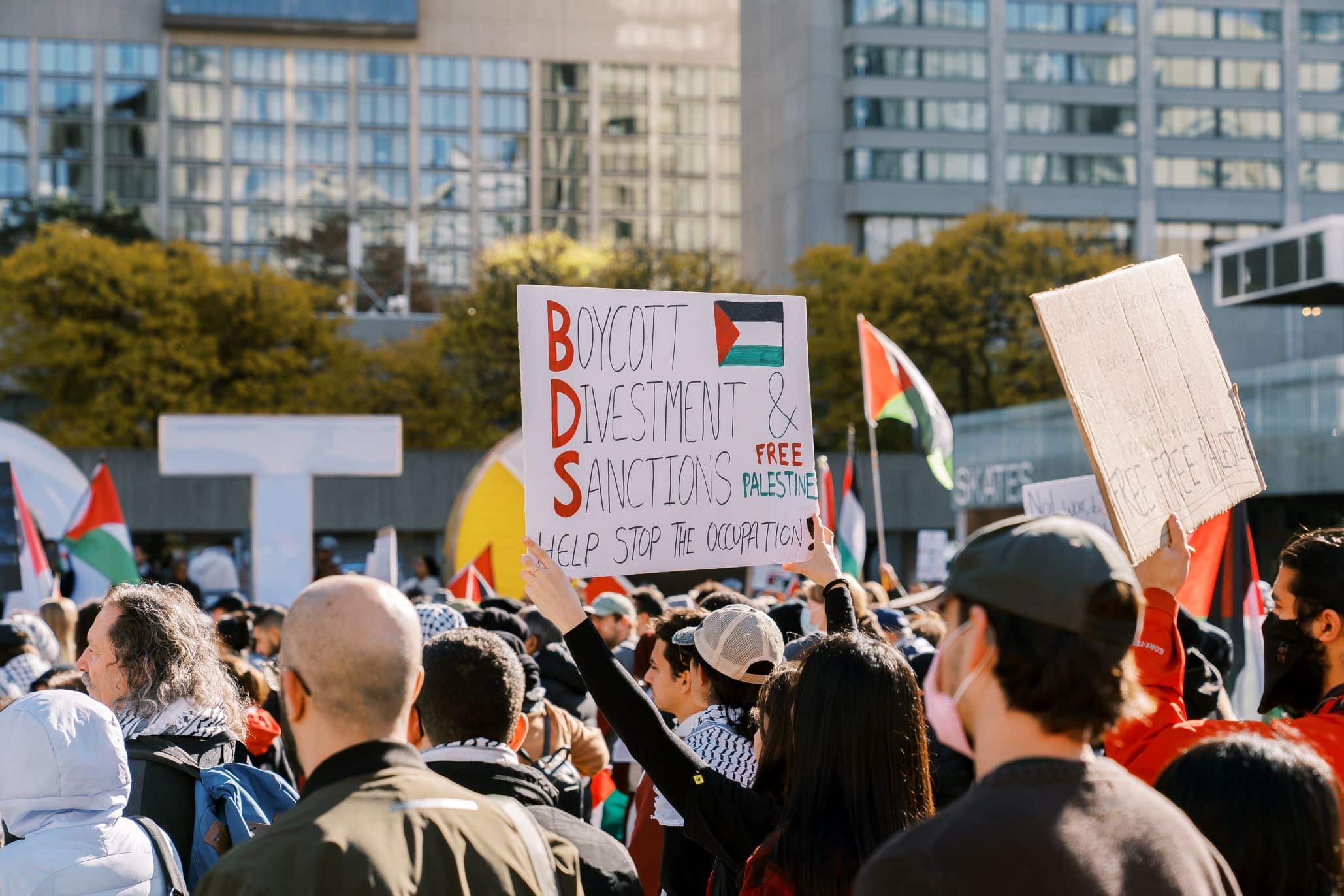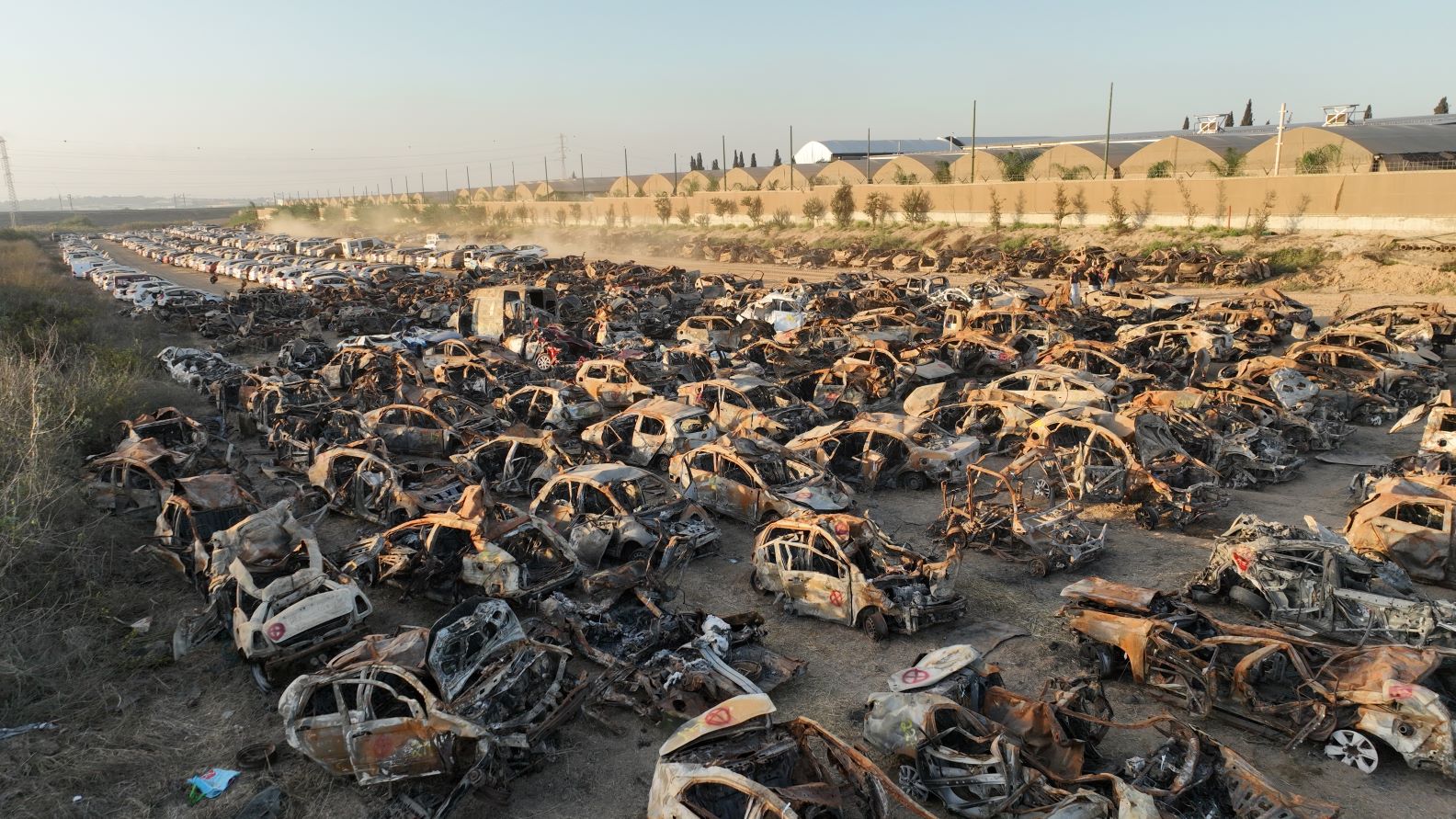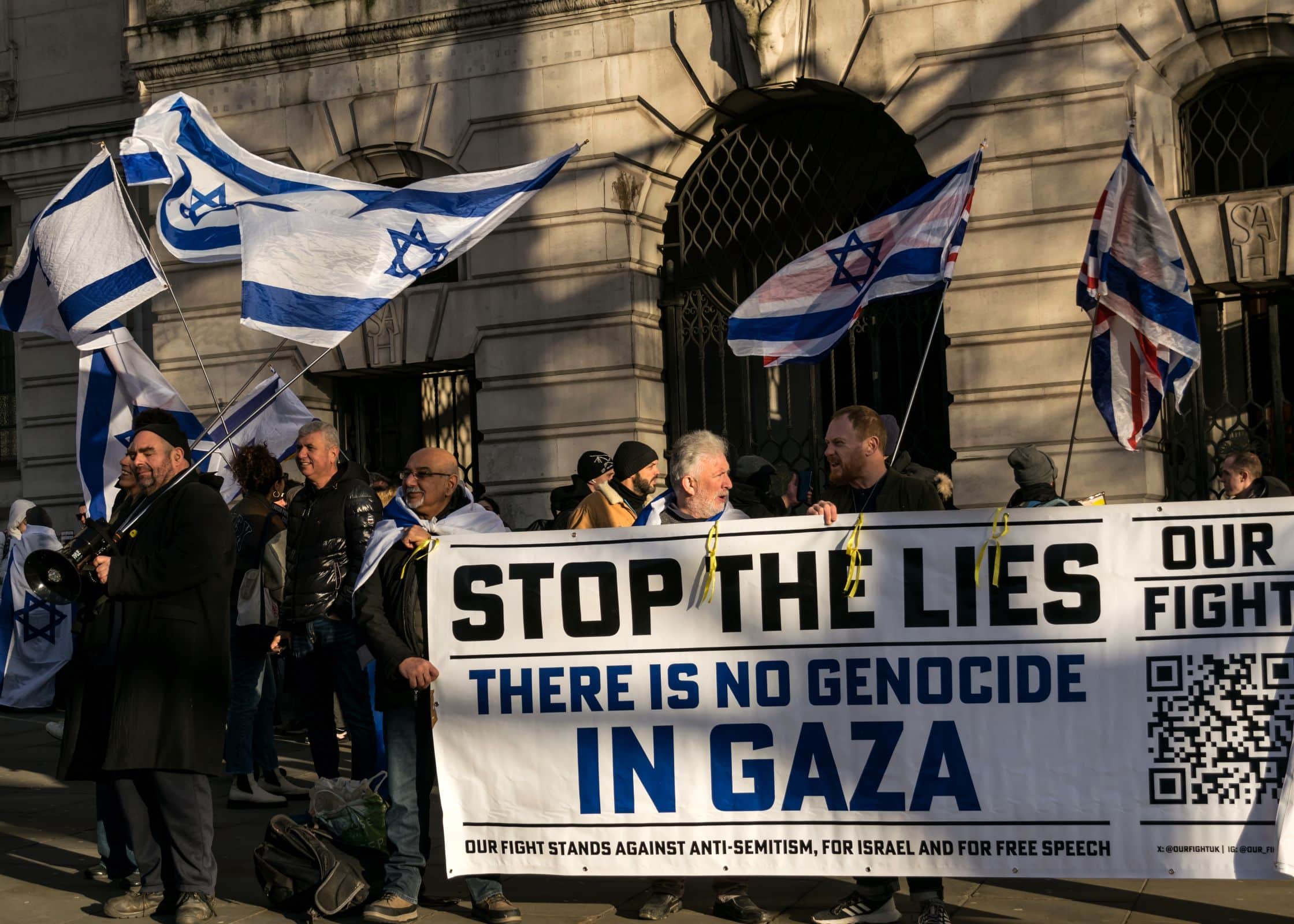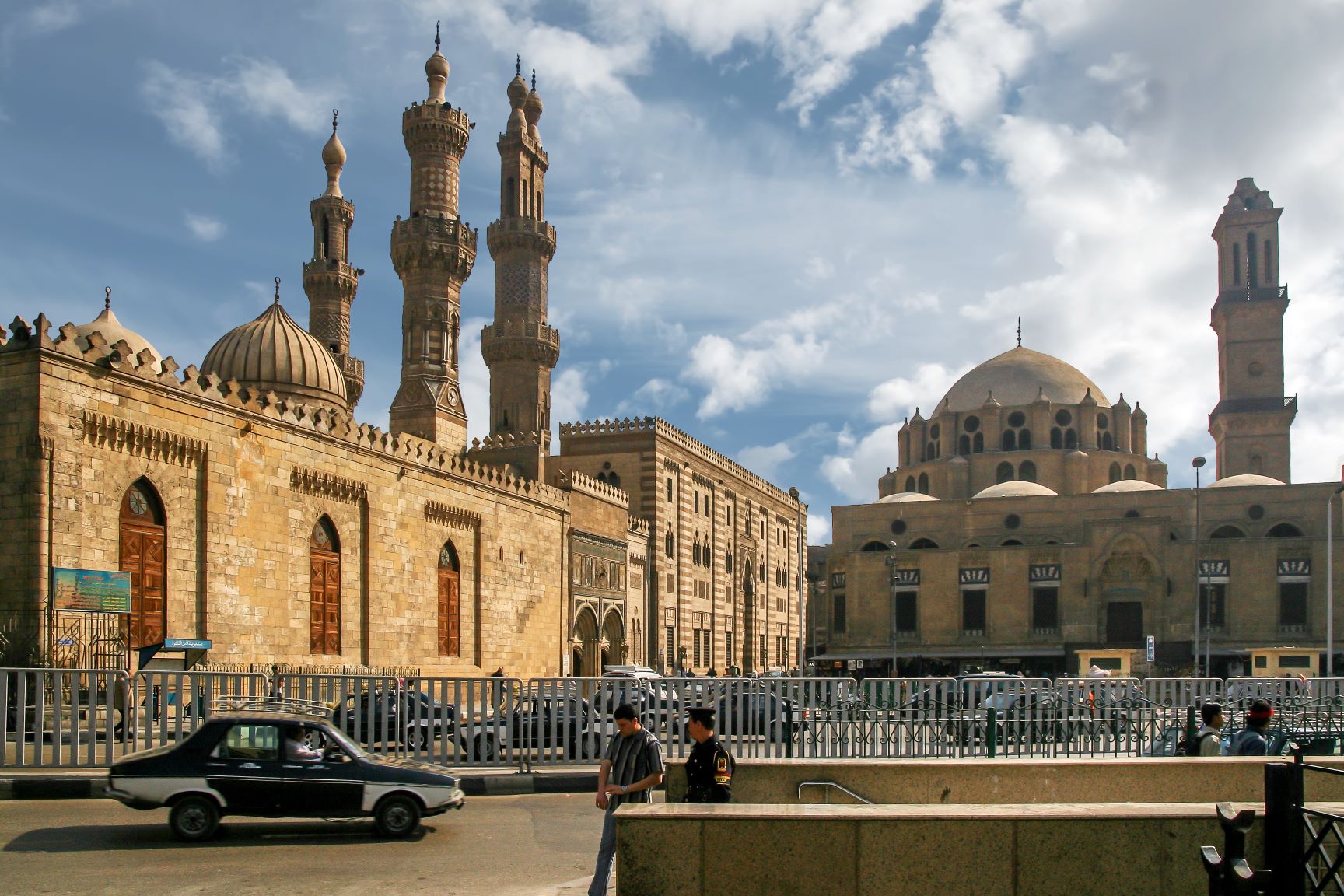
Since its inception, the Zionist movement has striven to gain Arab understanding and acceptance of the idea of the Return to Zion: That Jews have legitimate claims to the Land of Israel, that they wish to establish a national home in cooperation with the Arabs, and that the Jews’ return to their homeland will greatly benefit the Arabs and bring them development, and progress.
The Arabs, who, as a result of the disintegration of the Ottoman Empire at the end of World War I, gained several states, stretching from the borders of Iran to the shores of the Atlantic Ocean, firmly and resolutely refused to listen to the Zionist claims and vehemently opposed any affirmation to any Zionist claim.
The Arabs also exhibited this strong and determined opposition to all Zionist compromise proposals and concessions, such as the various partition plans, which left the Zionists with a very small area of land compared to the Zionist demands regarding the National Home area, as presented at the Peace Conference held in Paris in 1919.
The Arabs did not even respond to any of these attempts at compromise. For them, it made no difference whether the Jewish state, if established, is large or small. They fundamentally opposed the notion of such a state being established at all. In various Zionist circles, especially among the “peace seekers”, the illusion prevailed that if the Zionist movement gave up some of its demands, it would elicit a desire for peace among the Arabs, as existed among the Jews.
From the beginning, the Arab governments or the Palestinian Arab leadership never intended to engage in negotiations or bargaining diplomacy. From the beginning, they pursued a policy of violence against the Jewish community in the Land of Israel. This was the case throughout the years of British Mandate rule and since the establishment of the State of Israel, and continues to this very day.

The intensity and sophistication of Arab violent resistance varied according to circumstances, but it has persisted until today. This resistance to Zionism reached its peak in the series of military campaigns in which the regular armies of Arab countries such as Egypt, Syria, and Jordan participated. In all of these military campaigns, the Arab armies suffered severe and humiliating defeats, but the IDF victories were not enough to cause the Arabs to surrender. Between the campaigns, the Arabs engaged in small-scale fighting, which we call terrorist acts. It is not easy to fight a war against terrorism, and it may also be impossible to achieve complete victory in such a war. This is a war that has been going on, in various forms, for many long years and it may continue for many more.
The Arabs were not satisfied solely with violent military combat against Israel, whether by regular armies or religiously inspired terrorist organizations. They have terrorized Israel in many other domains, provided they do everything possible to make life miserable for Israel and to weaken it. Many probably remember the period of the economic boycott against Israel, which was not very successful, but caused Israel considerable inconvenience and damage.
We are currently in the midst of a broad-scale political-social campaign, encompassing many countries and international organizations, aimed at boycotting anything Israeli, delegitimizing Israel, and creating a hostile international environment that legitimizes Israel’s destruction.
Recruiting the Diaspora for public diplomacy
Strong Arab propaganda, inspired by intense hatred and a heavy reliance on lies, aimed at harassing and weakening Israel, undermining its legitimacy in the world, and tarnishing its image, has accompanied the Zionist enterprise almost since its inception. This propaganda operates in tandem with all other Arab efforts: military violence, political and economic boycott, and any other means capable of harming Israel. Arab anti-Israel efforts are absolute.
It should be mentioned that the domestic crisis in Israel, with its accompanying hatred and uncivilized internal debates, lends a helping hand to Arab propaganda. What more could hostile Arab propaganda ask for than hate speech from a former Chief of the General Staff or other senior figures against their country?
This Arab propaganda has had periods of success and periods of failure, but it seems that it has never had such a successful time at Israel’s expense as since October 7th.

The incomprehensible paradox here is difficult to explain: Israel was the one that suffered a surprise attack by a terrorist organization who slaughtered about 1,200 people in the Gaza Envelope that day and perpetrated monstrous acts of cruelty; kidnapping about two hundred men and women, children and the elderly, the sick and the healthy – which in itself is considered a crime against humanity. How is it possible that Israel, who was surprised, beaten, and bruised, is being condemned from all sides, and not the murderers? How is it possible that the vast majority of the world’s countries did not condemn the murderers and did not even ensure that the Red Cross could visit the hostages? The UN and its agencies, including the International Court of Justice in The Hague, which has long since become an arm of Arab anti-Semitism, also did nothing to help rescue the hostages. And when the IDF began hitting Hamas, how come the masses took to the streets in various places around the world, in mass demonstrations against Israel and not against Hamas? And why did political leaders and the International Criminal Court in The Hague accuse Israel of genocide and not the Gazan terrorist organization?
There are explanations for this phenomenon, and for the alliance that has been formed between the large Arab communities around the world and various anti-Semitic circles, and between extreme left-wing and extreme right-wing circles. This is not a pleasant or easy situation, and it is difficult to deal with.
The savage Arab propaganda currently being waged in various forms against Israel has various advantages, but it is also possible to oppose it and try to weaken it. Israel has many allies that should be recruited and activated in a systematic and coordinated manner to weaken the power of that propaganda.
In places where there is a Jewish community, action should be taken to utilize the community, its institutions, and appropriate individuals from within it to coordinate counter-actions, in each place according to its conditions. Many places have friendship associations with Israel, Jewish professional associations such as doctors, lawyers, and the like. Many of these will join in counter-action. The major Jewish donors to universities and cultural institutions will definitely be eager to cooperate; after all, the clear anti-Semitic threat posed by the Arab movement against Israel endangers them as well.

Such actions, and many other similar ones, have also been taken in previous times of crisis, with varying degrees of success. There were successful precedents for this, especially during and after the Yom Kippur War. A system of organizations and aggressive public diplomacy campaigns against Arab propaganda must be reorganized. Its success depends on coordinated and vigorous organizational action. The natural entity to coordinate such actions is the Ministry of Foreign Affairs’ Public Diplomacy Division, which has representative offices deployed in dozens of countries worldwide, and has also carried out such actions in the past. There is no point in entrusting this task to a special government public diplomacy ministry, headed by a minister who lacks any understanding of the subject.
Religious ruling recognizing Israel
On the surface, the picture is bleak. Israel is surrounded by enemies on all sides and there is no end to the bloodshed in sight, despite its military achievements and victories, and its accomplishments in so many other areas as well.
Although Israel has signed peace agreements with its two neighbors – Egypt and Jordan – we should not delude ourselves again and not see these agreements for what they are not. Both are important agreements that are highly beneficial, in various domains and for all the signatory countries, but they all lack one clear thing – they do not bring true peace, as we, in israel, had hoped. It could be said that these peace agreements more closely resemble armistices than peace treaties. In any case, this is better than a state of war.
And yet, although it seems that true peace is unlikely in the foreseeable future, there is something worth trying. Maybe it will bear fruit.
Let us first explain that in Arab and Islamic countries, even those considered secular, religion and those holding senior religious positions are held in high regard. In these countries, senior religious figures and those with the authority to issue religious rulings (“muftis”) are treated with great respect. Such a legal ruling is called a “fatwa”, and the more esteemed the mufti who issues it is, the greater influence it has on public opinion. Such muftis are found in all Arab countries, and there have previously already been those who have issued fatwas that are relatively positive or sympathetic to Israel. The most important Muslim institution in the Arab world for such religious scholars is Al-Azhar University in Cairo. The religious rulings that are issued on various topics by the heads of this institution carry great weight.

Israel’s goal should be to obtain such a fatwa, which recognizes the Jews’ right to the Land of Israel and recognizes Israel as the land of the Jewish people.
Is this possible? It’s hard to know. The chances seem negligible, but we should attempt to develop dialogues with every Muslim religious scholar wherever such a connection can be made. This can undoubtedly be done; such connections have already been made in various places. This is not the place to detail how to try and develop such an operation, which must be conducted wisely, cautiously, and quietly. The chances may be very slim, but it is still worth trying. Without religious sanction for peace with Israel, the longed-for peace will not be achieved.
About the author:
Dr. Moshe Yager. He served in the Ministry of Foreign Affairs for 40 years and held ambassadorial positions in Sweden and the Czech Republic.
The text is solely the opinion of the author and does not necessarily reflect the movement’s opinion.





